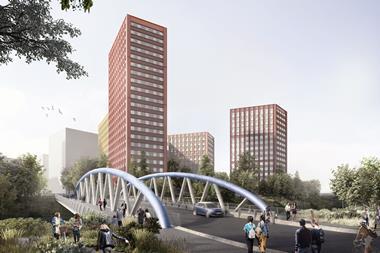The recent decline in housebuilder share prices is symptomatic of a growing lack of investor confidence in the sector.

It is clear that Brexit is having an impact on economic confidence and this is being felt mostly in London and the south, where housing has been at unsustainably high price levels for too long.
There are also clear signs that government policy is continuing to move against overseas buyers. The imposition of higher stamp duty will only serve to deter international investment, which in turn will reduce liquidity in the housing market and reduce transactions.
Fragility in the London market has already been signposted by Berkeley and now Crest Nicholson, but the bigger concern will be the potential for a wider post-Brexit housing market slump, coupled with the industry’s continued dependence on Help to Buy.

This is the real elephant in the room, which must be addressed if there is to be a resilient and sustainable housing market.
It will also be interesting to see whether some housebuilders who have recently committed to innovative procurement and modern construction methods dump their plans and revert to short-term thinking, as bricklayers and plumbers may become easier to secure again if production declines.
While this is a tempting prospect, it could be a fatal mistake for the medium- to long-term sustainability of their businesses.
































No comments yet